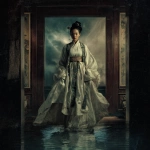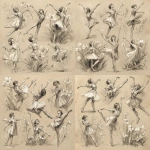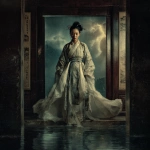Explore the Best AI Image Gallery

Harnessing AI-Generated Images in Marketing: A New Frontier
In recent years, the marketing landscape has witnessed a technological revolution fueled by artificial intelligence (AI). One striking development is the rise of AI-generated images, which are becoming increasingly prevalent in various marketing efforts. From advertisements to social media content, AI images are reshaping how brands communicate with consumers. This blog post explores the impact of AI images on the creative industry, potential uses in marketing, ethical considerations, and future trends that may emerge as this technology evolves.
The Impact on the Creative Industry
AI-generated images are revolutionizing the creative industry in several ways. Traditionally, the process of creating visual content involves extensive hours of brainstorming, sketching, and editing. However, AI tools can generate high-quality images in seconds, significantly streamlining the creative workflow. Marketers can now experiment with a broader range of visuals without the associated costs of hiring photographers or designers for each project.
Moreover, these AI models can learn from an immense database of images, mimicking styles, and creating unique visuals that cater to different audiences. As a result, brands can achieve highly targeted marketing campaigns that resonate deeply with their consumers. This ability to customize visuals is particularly vital in today’s digital landscape, where personalization is key to engaging customers and enhancing brand loyalty.
Potential Uses of AI-Generated Images in Marketing
The applications of AI-generated images in marketing are both diverse and promising. Here are several key uses:
- Social Media Content: Brands can utilize AI images to create eye-catching posts that attract audience attention. This capability is crucial given the highly competitive nature of social media platforms.
- Advertising Campaigns: From web banners to print ads, AI-generated imagery can be used to develop appealing visuals that are tailored to specific target demographics.
- Product Visualizations: AI technology can produce realistic renderings of products, providing customers with a better understanding of what they are purchasing before they make a decision.
- Dynamic Content Creation: AI can adapt visuals in real-time based on user interaction, allowing for a personalized experience that can increase engagement and conversion rates.
Ethical Considerations
While the advantages of AI-generated images are compelling, there are ethical considerations that marketers must navigate. One significant issue is the authenticity of visual content. As AI technology progresses, consumers may struggle to discern what is real and what has been artificially created. This raises important questions about trust and transparency in marketing communications.
Additionally, the potential for manipulation of images poses a risk. Brands must be cautious about how they use AI-generated content, ensuring it aligns with their values and does not mislead consumers. Effective regulation and guidelines will be necessary to address these ethical challenges while still leveraging the advantages of AI technology.
Future Trends
The future of AI-generated images in marketing is promising, with several trends on the horizon:
- Increased Personalization: As AI continues to develop, marketers will harness more advanced algorithms to create visuals that are deeply personalized to individual user preferences.
- Enhanced User Interaction: Integrating AI-generated images with augmented reality (AR) and virtual reality (VR) technologies may pave the way for immersive customer experiences.
- Further Customization Tools: Future tools will likely offer marketers even more customization options, enabling them to modify AI-generated images on-the-fly as campaign needs change.
- Collaboration Between Creatives and AI: Rather than replacing creative professionals, AI will serve as a companion, assisting artists in exploring new creative avenues and enhancing their initial concepts.
In conclusion, AI-generated images represent a new frontier in marketing that offers unlimited opportunities for creativity, personalization, and efficiency. As the technology continues to evolve, it will be essential for marketers to balance innovation with ethical considerations to maintain consumer trust and authenticity. Embracing AI in image creation can not only enhance marketing strategies but also redefine the boundaries of creativity and imagination in the industry.

](https://images.ai-img.art/thumbnails/150/476665d1452e44d38d5b4fbf5fab4389a6131d55b7bfe8a41d7f65f66b5a9310.webp)



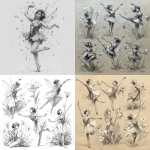

](https://images.ai-img.art/thumbnails/150/78b567a3483191dd52f3d16038b5a926e03e4066d5b301cfff023fb91a962e67.webp)

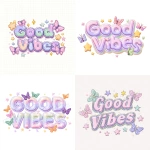
](https://images.ai-img.art/thumbnails/150/cf8299cc184c859eff89d17514689e19c7994ad29256a58ad77fa0f7218e2cff.webp)

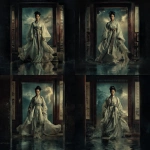


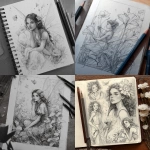





](https://images.ai-img.art/thumbnails/150/aed4d771a0a5b63bed28f6e7183dd4614c5e3e3586d300c8d879ccbb37dbfb4e.webp)


](https://images.ai-img.art/thumbnails/150/915b5e50ce61f6219cb8f764d89e2efcb8ad3a9ebd09e0670ae7dc0e2c99a8bd.webp)









](https://images.ai-img.art/thumbnails/150/da89993919887fcf2c84af5ec12f2ac997ad0f67c8bf00fecd67ba06a1b3dc49.webp)
